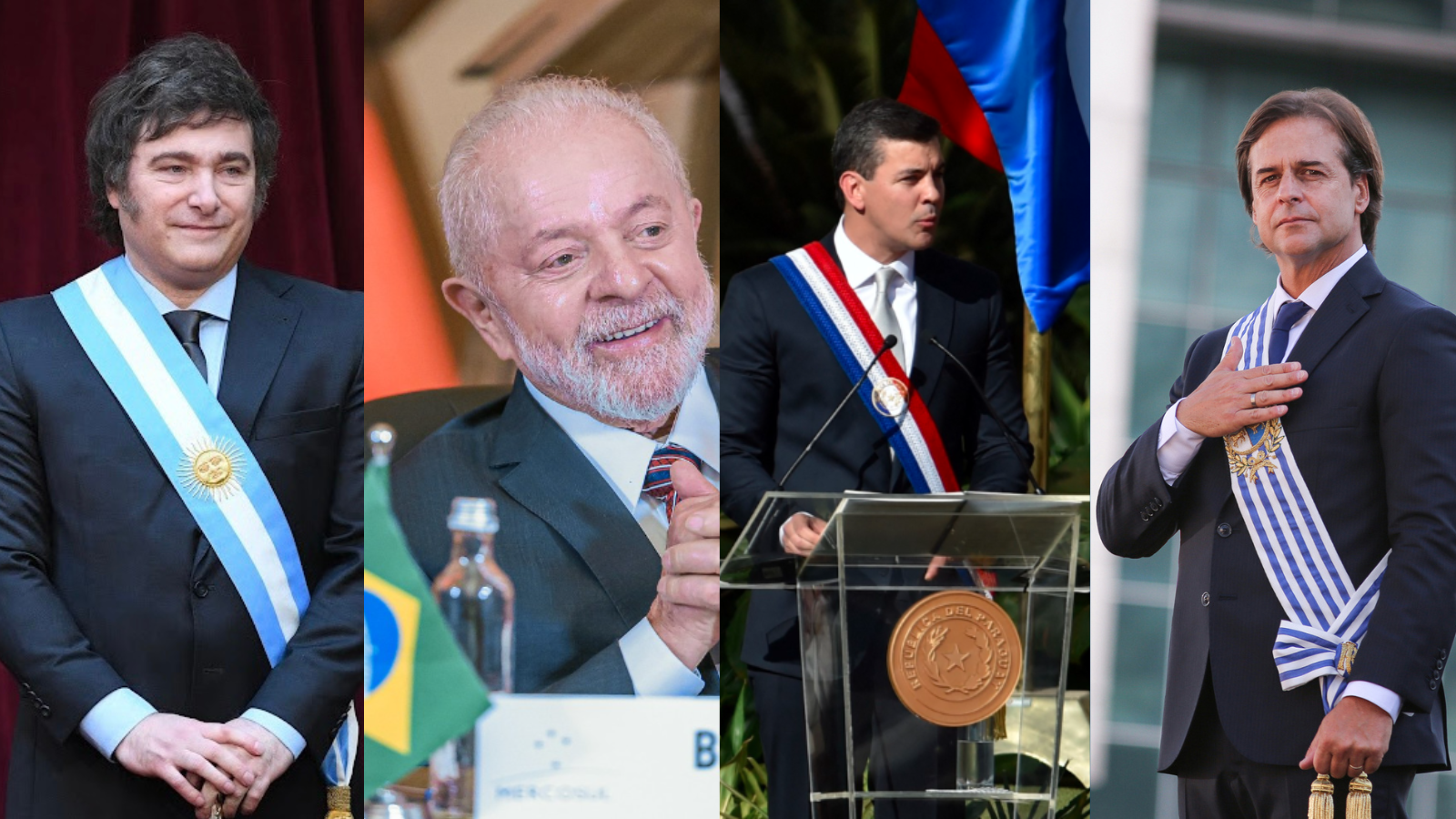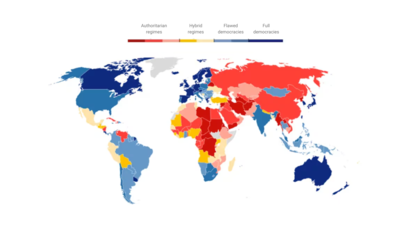Democracy
Mercosur: Resilient or Vulnerable Democracies?

Democracy in Numbers: The Economist Intelligence Unit's (EIU) Democracy Index 2023
The Democracy Index 2023 by The Economist Intelligence Unit (EIU) evaluates the state of democracy in different countries around the world. To do so, it uses a series of criteria such as the analysis of electoral processes and pluralism, the functioning of government, political participation, political culture and civil rights. These criteria are designed to provide a comprehensive and comparative assessment of democratic functioning in each country.
These indicators provide an analytical framework for assessing the quality and functioning of democracy. The Democracy Index classifies countries into four main categories: "full democracy", "flawed democracy", "hybrid regimes" and "authoritarian regimes", based on the score obtained in each criterion on a scale of 1 to 10. This ranking identifies trends and patterns in democratic development worldwide and provides a basis for policy formulation and democracy promotion around the world.
In 2023, a year marked by conflict and polarization, the world's overall Democracy Index score declined from 5.29 in 2022 to 5.23. Approximately half of the world's population resides in some form of democratic system (45.4%), but only a small percentage, 7.8%, live in a full democracy, with scores above 8.00. On the other hand, more than a third of the world's population lives under authoritarian regimes (39.4%).

What is the State of Democracies in the Mercosur Countries?
Democracy in Argentina has deteriorated, being rated in this edition as "flawed democracy" and falling four places in the world ranking, occupying position number 54, and at the regional level occupying position number 9, with a total score of 6.62 out of 10. This democratic decline can be partially attributed to the sharpening of socio-political polarization during the last elections.
The report points out that the deterioration of democracy in Argentina is related to the state of political forces. The country presents a scenario of political and economic uncertainty, with a profound need for economic stabilization and structural reforms. Furthermore, the challenge of political polarization requires reforms in the areas of social justice, education, health, and security. The libertarian president Javier Milei faces the main challenge of achieving governability under unfavorable conditions with a minority in parliamentary representation.
On the other hand, Brazil is also in the "flawed democracy" category, with a score of 6.68 it occupies 51st position in the world ranking. The drop of four positions since 2021 reflects persistent challenges in its democratic system. Lula da Silva's inauguration as president of Brazil in January 2023 marked the beginning of his third term in office, in a context of marked polarization and deep economic, social and environmental challenges.
The report pointed out several negative aspects in relation to Brazil, including demonstrations against the election results, which demanded the intervention of the armed forces. In addition, it highlighted the failed attempts to file complaints to annul half of the votes in the second round of the elections. According to The Economist Intelligence Unit, Brazilian democratic institutions withstood attacks by thousands of Bolsonaro supporters, who stormed the Presidential Palace, the Congress and the Supreme Court. Despite the fact that some extremist sectors resorted to political violence and advocated a military coup to weaken the foundations of democracy.
On August 15, 2023, Santiago Peña assumed the presidency of Paraguay. Peña, former Minister of Economy, belongs to the Partido Colorado, whose influence has been dominant in the Paraguayan political scene for decades, except for the period 2008-2013. In the democratic evaluation the country has experienced improvements, moving from the category of "hybrid regimes", characterized by having nominal democracy but authoritarian governments, to a "flawed democracy". With a score of 6.0 Paraguay is ranked 74th in the world.
As an exception in the region, Uruguay stands out as the only "full democracy" in Latin America. With a score of 8.66 out of 10 it ranks 14th in the world. It is particularly noted for its electoral process and pluralism, as well as civil liberties and the functioning of its government. Luis Alberto Lacalle Pou, the liberal president of Uruguay, completes his term of office in March 2025. National elections will be held in October 2024.
The Importance of Consolidating Relations with Europe and Ratifying the Mercosur-EU Agreement
These index results reflect a difficulty for the Mercosur countries to consolidate their democracies. As far as the region is concerned, in many cases there has been a democratic regression and hybrid regimes have faced difficulties in their democratization. Despite the challenges, it is essential to continue working towards greater transparency, citizen participation and respect for human rights in the region and in the world.
According to The Economist Intelligence Unit, Latin America and the Caribbean experienced its eighth consecutive year of democratic decline. However, the region remains the third most democratic in the world, after North America and Western Europe.
These results provide an overview of the current situation in the region and call for action to strengthen democracy, guarantee respect for human rights and promote a political culture that fosters citizen participation and liberal values.
The Mercosur-European Union agreement represents a great opportunity for the Mercosur countries to strengthen their ties with Europe and thus promote and strengthen democratic values in the region. Therefore, it is crucial to ratify the agreement and work towards building a common future.
